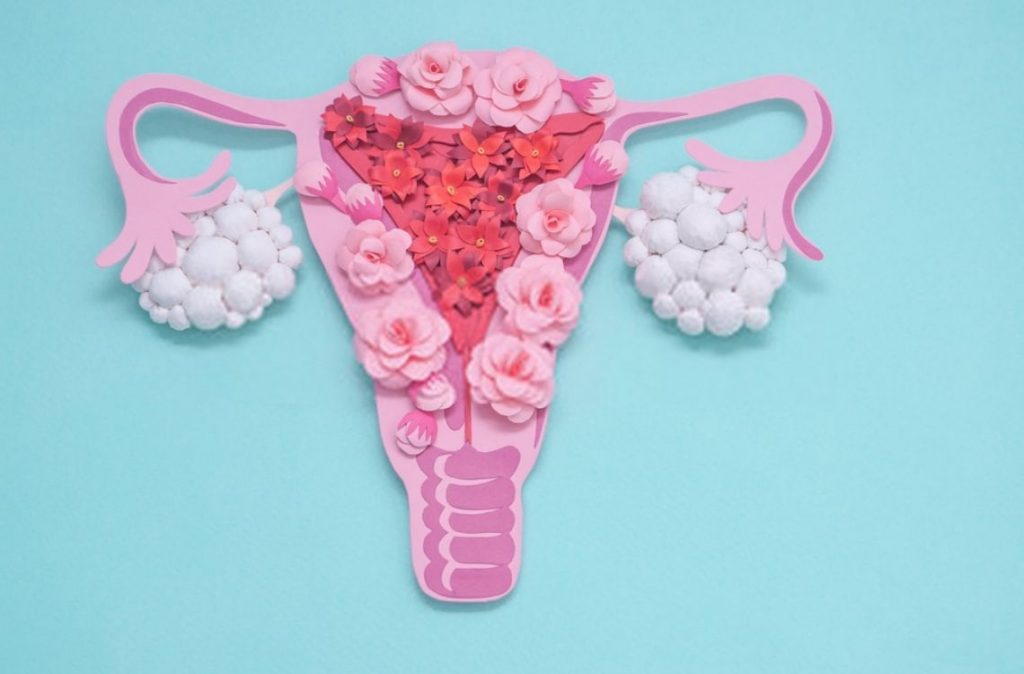Polycystic Ovary Syndrome known as PCOS is a common health issue affected by an imbalance of reproductive female hormones.
PCOS causes the egg unable to develop as it should or it may not be released during ovulation as it should be.
Do you know that Polycystic Ovary Syndrome (PCOS) is a health problem that affects 1 in 10 women of childbearing age? Yes, many women experience this!
Many women wonder, how do they know if they have PCOS? Here are a few symptoms of PCOS that you should know according to Women’s Health Gov:
- Irregular menstrual cycle.
- Excessive hair on the face, chin, or parts of the body where men usually have hair. This is called “hirsutism.” Hirsutism affects up to 70% of women with PCOS.
- Acne on the face, chest, and upper back.
- Thinning hair or hair loss on the scalp; male-pattern baldness.
- Weight gain or difficulty losing weight.
- Darkening of skin, particularly along neck creases, in the groin, and underneath breasts.
- Skin tags, which are small excess flaps of skin in the armpits or neck area.
What Are The Causes?
Up until today, the exact cause of PCOS is still unknown. Most experts think that several factors may affect such as genetics.
Increase levels in inflammation.
Insulin is the hormone that is created in the pancreas that helps cells to use sugar to supply energy.
Women who have PCOS may have resistance towards the action of insulin which leads to the rise of sugar levels and produces more insulin. This causes difficulty with ovulation.
High levels of androgens.
Androgens are sometimes called “male hormones,”. Do you know that all women make small amounts of androgens? Yes, and women with PCOS have more androgens than normal.
The increase of androgen levels in women can prevent the ovaries from releasing an egg (ovulation) during each menstrual cycle, and can cause extra hair growth and acne!
What Are The Treatments?
Medicines
- Hormonal birth control, including the pill, patch, shot, vaginal ring, and hormone intrauterine device (IUD).
- Anti-androgen medicine.
- Metformin.
Home Treatment
- Lifestyle changes – such as eating a healthy, balanced diet and introducing regular physical activity into your weekly routine.
- Losing weight – research has shown that even five to 10 per cent weight loss can provide significant health benefits such as restoration of normal hormone production, improved mood and reducing symptoms such as acne and facial hair.
Will It Get Worse If It Is Not Treated?
There are some high risks of insulin resistance, high chances of diabetes, cholesterol, excessive blood fat, heart disease and endometrial cancer!
Overall, PCOS would be harmful to your body if not treated the right way. Make sure to keep a healthy lifestyle and losing weight would help tremendously!
For more information, you can read this article and make sure to visit your doctor if you have any questions. Bear in mind, your health is your own responsibility!
Disclaimer: The information provided in this article is for informational purposes only and should not be considered as medical advice from Motherhood. For any health-related concerns, it is advisable to consult with a qualified healthcare professional or medical practitioner.
For more insightful stories and fun recipes, stay tuned to Motherhood Story!
